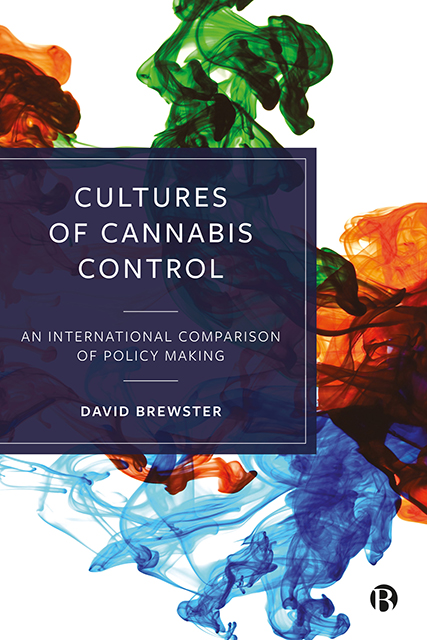Book contents
- Frontmatter
- Contents
- List of Tables
- About the Author
- Acknowledgements
- 1 Introduction
- 2 Cannabis Policy in Global Perspective
- 3 Sociopolitical Change and Cannabis Control
- 4 Problematizing Cannabis
- 5 The ‘Primeval Soup’ of Policy Proposals
- 6 The Political Environment and Windows of Opportunity
- 7 Beyond the National: Policy Negotiation, Resistance and Subversion
- 8 Cultures of Cannabis Control
- 9 Conclusions and Future Directions
- Appendix
- Notes
- References
- Index
3 - Sociopolitical Change and Cannabis Control
Published online by Cambridge University Press: 16 June 2023
- Frontmatter
- Contents
- List of Tables
- About the Author
- Acknowledgements
- 1 Introduction
- 2 Cannabis Policy in Global Perspective
- 3 Sociopolitical Change and Cannabis Control
- 4 Problematizing Cannabis
- 5 The ‘Primeval Soup’ of Policy Proposals
- 6 The Political Environment and Windows of Opportunity
- 7 Beyond the National: Policy Negotiation, Resistance and Subversion
- 8 Cultures of Cannabis Control
- 9 Conclusions and Future Directions
- Appendix
- Notes
- References
- Index
Summary
Introduction
Contemporary manifestations of cannabis control represent a complex milieu of responses both across and within countries. Understanding how this variation is possible, and where it has arisen from, requires us to examine historical patterns of political institutional cultures. Focusing on England & Wales and the Netherlands, which constitute the main empirical cases of this book, this chapter charts the development of domestic cannabis control from the 20th century within the broader sociopolitical context of each country. In some ways, the trajectories of governing crime and illegal drug problems appear to share remarkable similarities, with both countries evidencing a broad shift from a penal-welfare system to one fitting the characteristics of an ambivalent culture of control. At the same time, however, there are crucial differences in respect of foundational aspects of political institutional cultures as well as how political actors have reacted to endogenous and exogenous shocks that continue to produce different opportunities and restraints for policy manoeuvring in cannabis control.
The chapter is structured in two sections, organized chronologically, to allow for a critical exposition of the extent to which there has been a similar transition in each case from a system of control based on penal-welfarism to one characterized by a culture of control. Each section is framed around a comparison of the broader social and political environments and how these relate to developments in cannabis control.
Cannabis control and the penal-welfare state
Up to the middle of the 20th century, the issue of cannabis as a domestic political concern in both England & Wales and the Netherlands was fairly insignificant, rarely featuring in the thoughts of politicians. Yet, broader developments in the control of substances and crime, and how these responses were located within the respective social and political contexts, provided an important foregrounding for how cannabis would be responded to once it became more politically pertinent in the 1950s and 1960s.
Political culture and cannabis control in England & Wales
From the early 20th century until around the 1970s, and particularly in the post-war period, it has been asserted that the broader culture of crime control in England & Wales was predominantly oriented around penal-welfarism (Garland, 1996, 2001) (see Chapter 1).
- Type
- Chapter
- Information
- Cultures of Cannabis ControlAn International Comparison of Policy Making, pp. 33 - 65Publisher: Bristol University PressPrint publication year: 2022



